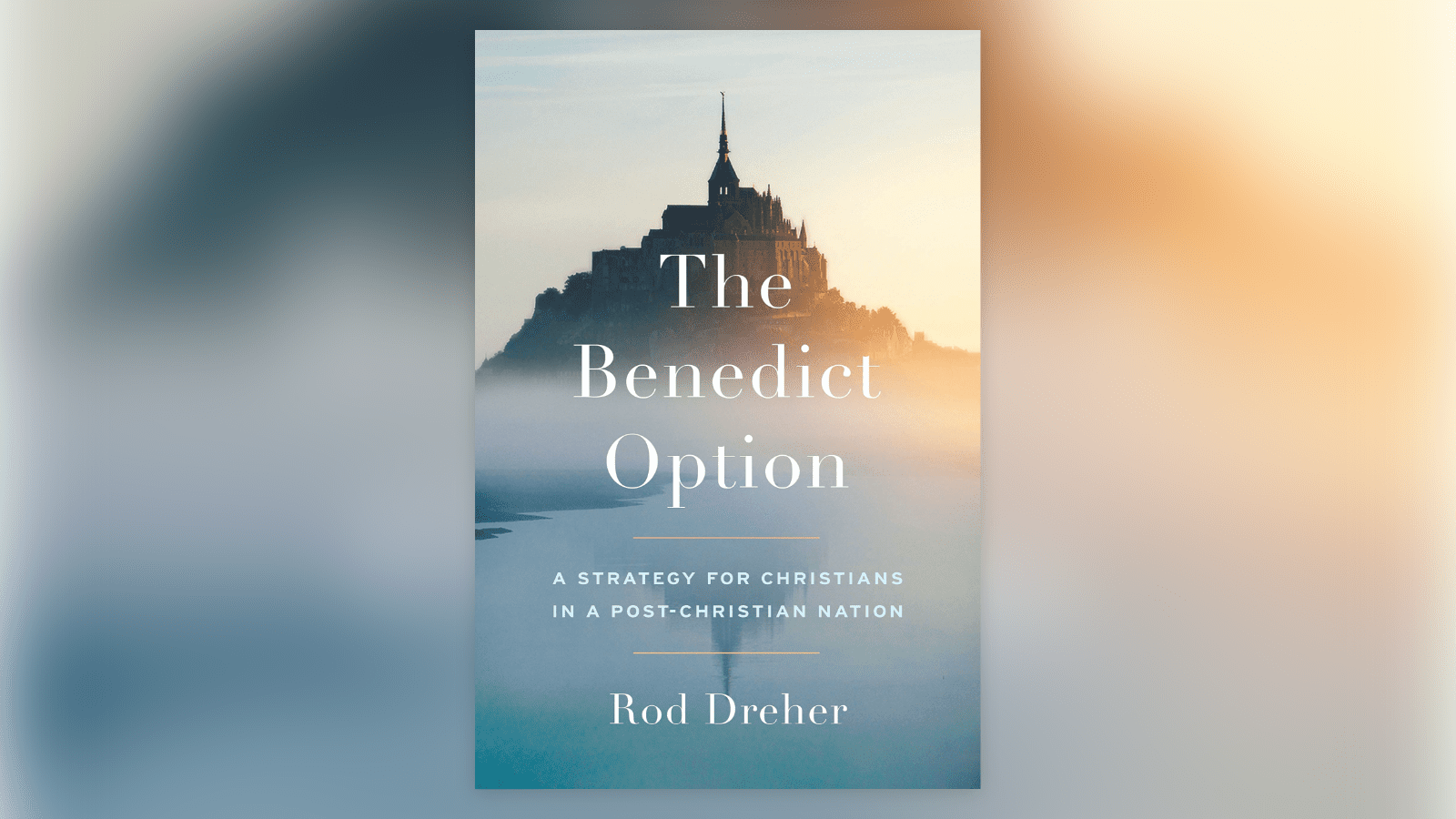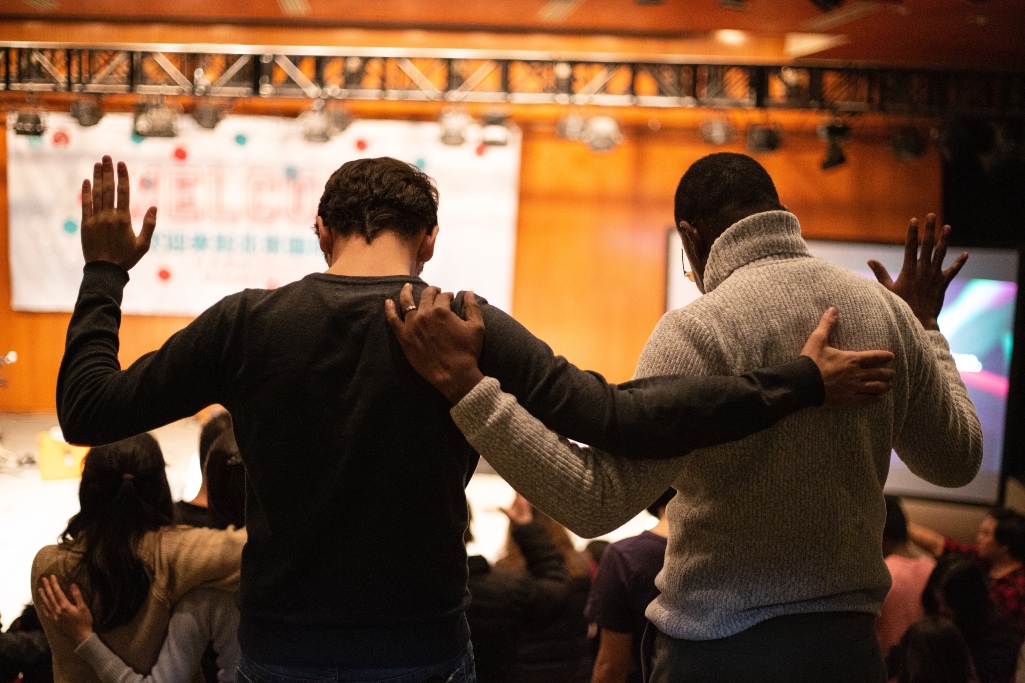
Rod Dreher’s vision of America is apocalyptic, and he’s looking to the past for a glimpse into the future. Ancient monasteries give him hope for American Christianity, but Dreher might find the Italian hill country of his dreams right across town.
His new book, The Benedict Option, warns of a coming flood, one that is already knee-high and rising. But it’s not literal water he’s worried about, it’s “liquid modernity” threatening to swallow orthodox Christianity and wash away the foundations of America.
“This may not be the end of the world,” Dreher writes, “but it is the end of a world, and only the willfully blind would deny it.”
Western society is unmoored from its intellectual and moral foundations, according to Dreher, and we are now cast afloat on an ever-changing sea of self-discovery. Sex and technology drive us with gale force.
Once stable notions of marriage and gender now drift on the waves. A constant deluge of hand-held pornography and digital entertainment threaten to sink what remains of self-control and solidarity.
American Christianity will not weather the storm unless she finds safe harbor.
Dreher, a writer and senior editor for The American Conservative, seeks refuge in The Rule of Saint Benedict. The ancient monastic code for Christian communities prescribes virtues like order, prayer, stability and balance – the bedrock of spiritual and social life being swept away by the torrent.
Dreher prays for a new Benedict, someone who has tread rough waters before, someone to teach the Christian community how to regroup amid turbulent social conditions, where Christianity lives best as a disenfranchised but prophetic minority.
Some critics scoff at Dreher’s “strategic retreat” from broader American culture. Evangelicals are especially wary of monkish ideas because they sound like an abdication of the evangelistic responsibility given to the church by none other than Jesus himself. But Dreher emphasizes the Benedict Option is not un-evangelistic. His strategy recovers solitude and renewal for American Christianity in ways that enhance the church’s witness.
Throughout the book, he points to a litany of ark-building communities that have embodied Benedict Option principles in various social milieus: Czech Christians, Orthodox Jews, Latter-Day Saints, Roman Catholics and his own tribe, Eastern Orthodox Christians.
Yet, there is an obvious group missing from the list, one that is singularly familiar with the raging seas of majority American culture. Dreher’s oversight blurs his vision – our Benedict is probably black.
The African American Christian community – maybe more than any other – offers tangible and near-to-home examples of how to live in this country in a degrading social environment. They have the spiritual and communal resources to help the rest of us do the same, if we’re willing to follow.
Perhaps a more nuanced account of Western history would have prevented the mishap. As Dreher traces the contours of seven centuries of Western thought, highlighting the critical missteps that contributed to the current crisis, he bypasses philosophical and theological ethnocentrism.
Although Dreher admittedly leaves out material, to sidestep racial issues while recounting European and American intellectual, spiritual and social development is a unique blunder.
The book contains in-depth theological discussions of the imago Dei, another opportunity to shore up weak levees in American Christianity. Still, the blight of theological, Curse-of-Ham-style racism never comes up, despite truly insightful accounts of image bearing as it relates to individualism and sexuality.
In a treatise meant to flush the wounds of Western society so future faith communities can heal and grow into vibrant and sustainable countercultures, it’s a devastating mistake to overlook the fact that for many American Christians in the 19th and 20th centuries, the doctrine of the imago Dei was a whitewashed tomb full of black men’s bones.
Since the book does not identify ethnocentrism as a mortal danger to faithful Christian communities, it’s unsurprising that Dreher’s “idea of a Christian village” does not prioritize diversity.
This is a serious error, and if uncorrected, ethnic homogeneity in an ever-diversifying America will doom Benedict Option communities to fail at some of the most important Benedictine practices, such as cultivating community and offering hospitality.
In addition to valuing ethnic diversity, Benedict Option communities would do well to follow the lead of minorities that have walked the paths of social isolation.
African American Christian communities can be exemplary in demonstrating how to sustain vibrant havens amid turmoil. They have deep, multi-generational experiences as minorities, and their spirituality bears it out.
Take, for example, the compelling theological case for justice that Martin Luther King Jr. made as he sat in a Birmingham jail. His appeals to historical Christian doctrines and American ideals strengthen the fiber of our social fabric, in addition to Christianity’s prophetic voice. King drew from deep wells of communal reflection on the nature of God, biblical anthropology and what it means to exist in an un-barbaric society.
Consider also Maya Angelou’s “Black Family Pledge.” The tenor, resilience and timeliness of the piece embodies a great deal of Dreher’s Benedict Option:
Because we have forgotten our ancestors, our children no longer give us honor.
Because we have lost the path our ancestors cleared, kneeling in perilous undergrowth, our children cannot find their way.
Because we have banished the God of our ancestors, our children cannot pray.
Because the long wails of our ancestors have faded beyond our hearing, our children cannot hear us crying.
Because we have abandoned our wisdom of mothering and fathering, our befuddled children give birth to children they neither want nor understand.
Because we have forgotten how to love, the adversary is within our gates, and holds us up to the mirror of the world, shouting, “Regard the loveless.”
Therefore, we pledge to bind ourselves again to one another;
To embrace our lowliest,
To keep company with our loneliest,
To educate our illiterate,
To feed our starving,
To clothe our ragged,
To do all good things, knowing that we are more than keepers of our brothers and sisters. We are our brothers and sisters.
In honor of those who toiled and implored God with golden tongues, and in gratitude to the same God who brought us out of hopeless desolation,
We make this pledge.
Whether Dreher refers to a literal person or a personified community, he is profoundly right that Christians in America need a new Benedict. But we shouldn’t be surprised if the monastery bells ring a Negro spiritual: “The old Ark’s a moverin’.”
(EDITOR’S NOTE – Seth Brown is content editor for the Biblical Recorder, news journal for North Carolina Baptists. The Benedict Option by Rod Dreher is available for purchase March 14 at Amazon.com or your favorite bookseller.)


